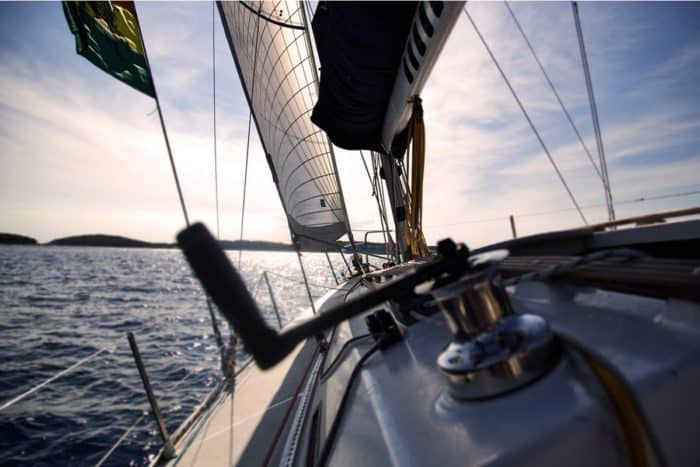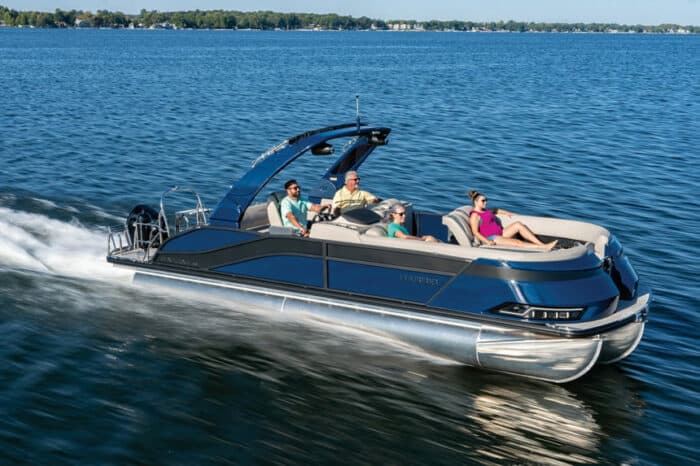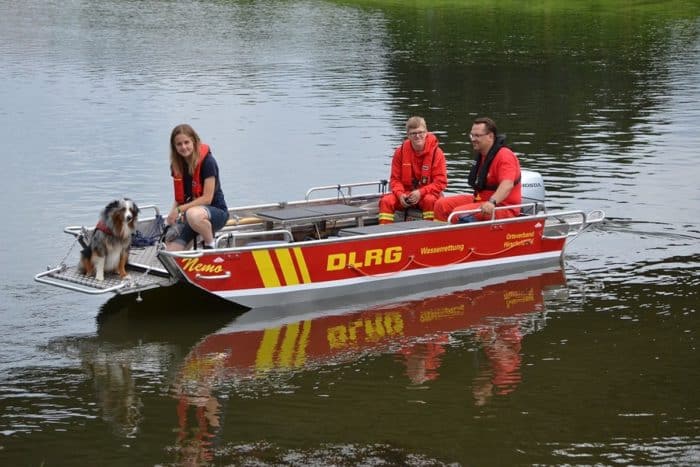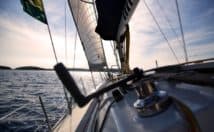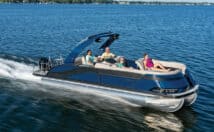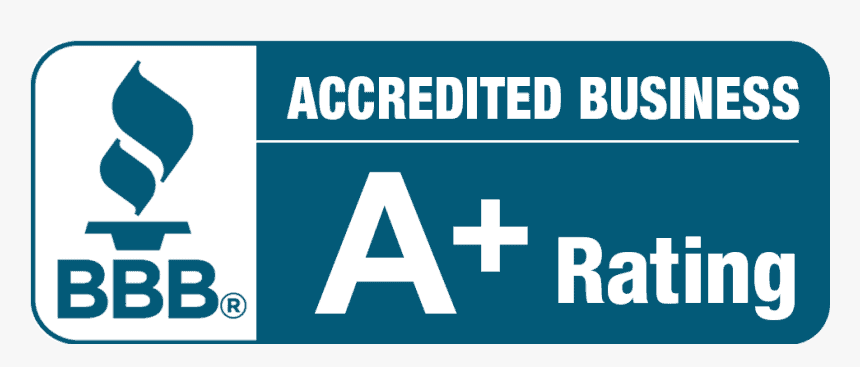What is Most Likely to Cause Someone to Fall Overboard?
Boats are not easy to adjust to for people who are not used to them and, as a result, the most common cause for people falling overboard seems to be the simple act of just standing up. Because a passenger on a boat may not have sure footing, particularly if the the wind or waves are rocking the boat, standing can make it difficult to maintain balance and, on small boats, can lead to someone falling overboard fairly quickly.
In 2020, the US Coast Guard ranked falls overboard as the 5th leading cause of boating accidents. They have records of 181 deaths and 161 injuries as a result of people falling overboard. In 2019 there were 299 accidents reported that involved people falling overboard. This doesn’t include incidents in which a person was able to be helped back onto the boat and thus the Coast Guard was never involved. Based on that, it’s a safe assumption that probably hundreds if not thousands more people will actually fall overboard but suffer no ill consequences.
There are definitely other factors that can lead to someone falling overboard. Bad weather conditions are a potential cause, especially high winds and dangerous waves that can batter a boat around on the water. These can hit hard enough to knock a person, even a seated person, off of a boat.
Accidents are also a major cause of people going overboard. If your boat runs aground or collides with another vessel, the force of that collision can cause a person to be thrown free of the boat.
Unsafe boat conditions can also lead to someone going overboard. Railings or seating that is not safe and secure, or rigging and booms on a sailboat that are not secure, could potentially come loose and knock someone overboard as well.
Still, above all else, the simple act of standing up is the most likely cause for someone to fall overboard on a boat.
How Does Standing Up Lead to Falling Overboard?

On larger vessels, the sheer size of the boat leads to greater stability. A yacht, for instance, is designed to be walked around on. The beam is wide and the deck is typically very stable as a result of how the hull is designed to sit in the water. Even on something like a pontoon boat, the tubes keep the boat on top of the water and are able to resist the effects of current and wind to a fair degree, ensuring you stay reasonably sure footed on the flat surface. People take this stability for granted, however, and that can lead to a lack of caution and some reckless behavior.
The problem arises when conditions are not ideal or not expected. Even though it seems like a man overboard situation is the sort of thing that only happens in stormy conditions, the opposite is true. Most boating accidents occur on calm seas, as much as 83% of them in fact, potentially because people don’t think conditions are dangerous so they take less caution and care with what they’re doing. That can take a few forms, depending on the situation.
- Smaller Craft. Boats like a small jon boat or a canoe are often much more precarious in the water when it comes to balance. The weight of a single person can greatly alter the way the boat is balanced and how it sits in the water. Leaning to one side or another can offset the boat and cause a person to fall in. Even a slight change in wind or current can make a small boat feel very unstable underfoot. And, even on perfectly calm waters, if a boat is small enough, the weight distribution of someone standing up can cause the boat to wobble and toss a person overboard very quickly. When you stand you are altering the center of gravity. This is extremely common in canoes. It’s also why you want to try to maintain your balance and weight along the centerline of the canoe, which is the most stable point.
- Slippery Boat Decks. There’s a reason you should wear non slip shoes for boating, like a good pair of deck shoes. But casual boaters, in particular passengers on boats just going out for an afternoon trip or some such, won’t be prepared. It’s possible that a wet deck combined with someone over confident in their ability to stand or move around could lead to falling overboard. If you’re attending a formal event on a boat, like a yacht party, don’t wear high heels. They’re ruin the deck and also will be very unstable.
- Imbalance: This is a potential contributing factor that can lead to accidentally falling overboard. A small to mid-size vessel is more likely to suffer the ill effects of an imbalanced load. If too many passengers or too much gear is stored to one side rather than another, the boat will not ride evenly on the water and even slight disturbances can cause a serious shift which can knock someone overboard. A small aluminum fishing boat that has two people and an outboard at the stern may sit very heavy in the water. If one of those people stands, it can cause the boat to dip to one side or the other and they may fall in.
- Motion. A boat that is moving makes it more difficult for a person to keep their own balance. With the rocking motion that can accompany this, especially on smaller boats, a person who is not very sure footed or otherwise has balance issues may find it difficult to stand and is at risk of falling overboard.
- Weather/Water Conditions. In much the same way that the motion of the boat can make you unsteady, rough seas and winds can also exacerbate the situation. If you’re seated you’ll likely be much better off but if you stand it can become almost impossible to stay upright in poor enough conditions.
- Drinking. We all know that operating a boat while under the influence can be dangerous. But it can be dangerous just being on a boat while drinking as well. If you drink to excess, the unsteadiness of a boat, which is easier to adjust to when sober, can cause you to lose your balance more easily and fall overboard as a result. People fall overboard when they drink, so take caution.
- Carelessness. This goes hand in hand with drinking. Both of them together seem to be the more likely causes for people falling overboard from larger boats and even cruise ships. Those vessels rarely suffer noticeable effects from waves and wind because of their size. But a few people a year still go overboard because they are drinking, not paying attention, or just being reckless.
Why Would Someone Stand Up on a Boat?
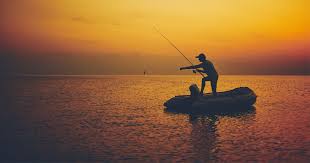
If standing up causes so many problems, you might be inclined to wonder why anyone is standing up. This is a question people who don’t boat that often seem to ask. There are many reasons to stand up on a boat, including some very reasonable ones.
- Operating the boat. The fact is, a number of boats, like a center console boat, can’t even be operated if you’re not literally standing at the wheel doing so.
- Fishing. This is arguably the most common reason for anyone to stand up, especially on smaller boats. You can fish from a sitting position, but it’s often easier and offers more control in the standing position. When you have a fish hooked and are reeling it in, it’s also a lot easier then you stand because you have better leverage for using a net or pulling the fish in. For most anglers this is common practice and they’ll probably go their whole lives never falling overboard because they’re so used to it and have mastered the balance necessary to easily do this. For others, however, this makes things riskier.
- Intoxication. Like we said above, drunk people tend to be careless people. So a person may be more inclined to stand, even when the boat is in motion, because their judgment is impaired.
What’s the First Thing You Should Do When Someone Falls Overboard?
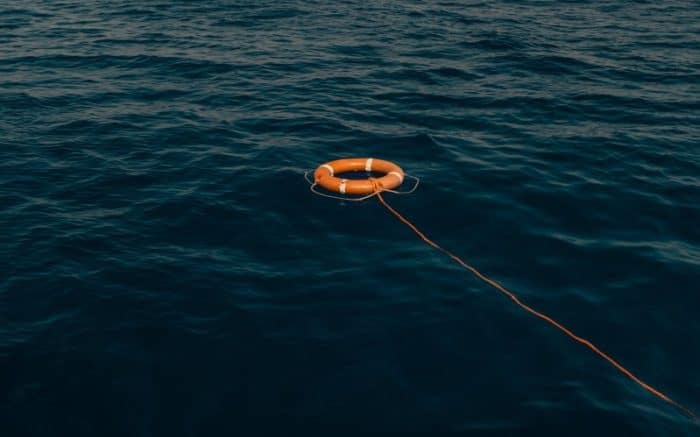
It’s very important to remain calm if and when you notice that someone fell overboard. You don’t want to panic and waste time or make the situation worse. The first thing you need to do the moment you realize you have a man overboard situation is to slow the boat down and turn off the engine.
This will allow you to keep the victim in sight so that it’s easier to rescue them. Also, it greatly reduces the risk of the person accidentally being injured by the boat if it’s still moving and the engine is running.
If you’re not actually in control of the boat but are just another passenger then you need to yell out “MAN OVERBOARD!” and keep your eyes on the person in the water. Point them out so the captain and other passengers can find them because it can be very easy to lose track of someone in the water. This is doubly true if the person is not wearing a PFD, even though they should be. A life jacket makes a good visual locator in the water, but if one isn’t present then you need to do your best to keep eyes on the person.
What Do You Do Next After a Person Falls Overboard?
You can throw a flotation device to an overboard passenger. Again, they should have been wearing one already but, unfortunately, this isn’t always the case. A flotation device serves two purposes. Chiefly, it can help the victim stay afloat in the water. Secondly, it can keep them visible thanks to the bright colors. If you throw a life ring, it may also aid in pulling the victim back to the boat so they can be rescued.
If necessary, call for help with your VHF radio. We have a full breakdown of what needs to be done when someone has fallen overboard here that you should be familiar with as part of standard boat safety, just in case.
What Can You Do to Prevent Falling Overboard?

Your best bet to avoid falling overboard is to not stand up. Simple enough, and it’s true. Don’t stand on a boat if you don’t have to. If you do need to stand for any reason, make sure the boat is not in motion. You should also always have a life jacket on whenever you’re on a boat, just in case something does happen.
Avoid any dangerous or reckless behavior, and if you are a passenger and enjoying some drinks on a boat, keep it within reason and don’t drink to excess such that you lose your ability to make good choices.
If you are on a boat that lends itself to standing, such as larger fishing boats, pontoon boats, yachts and so on, always make sure you’re being cautious. Railings are fitted on all boats for a reason. You should maintain a grip with at least one hand on a railing to keep steady at all times. Two hands is, of course, a better idea. Toe rails are also good for helping you maintain balance. Even on a boat that seems steady this is a good idea, in case something unexpected happens like a sudden swell or a collision.
The Bottom Line
Falling overboard may not be the greatest danger on a boat, but the Coast Guard has listed it as the 5th most common cause of accidents and that means it’s still very significant. It also leads to a high number of fatalities as well. The most common cause for someone falling overboard is the simple act of standing up. Because balancing on a boat is much different than balancing on solid ground, many boaters and boat passengers are not adept at maintaining their balance. The motion, wet and dry floors, carelessness and more can make being on a moving boat dangerous. Your best bet for avoiding a man overboard situation is to never stand on a boat unless necessary, and if you do need to stand make sure you do so on a boat that isn’t in motion.
Categories: Boats
